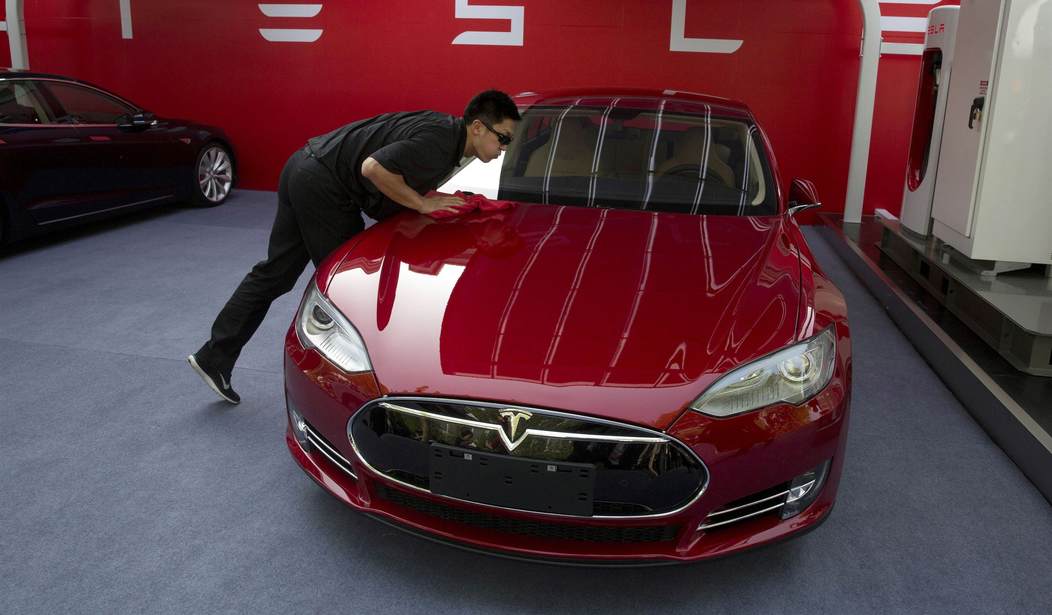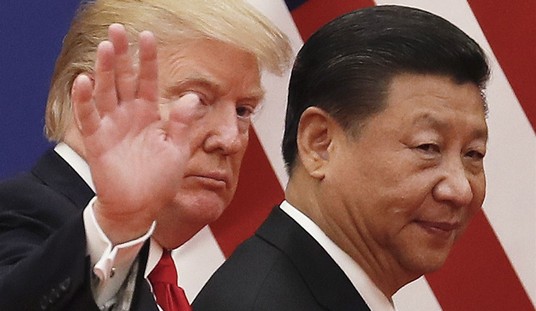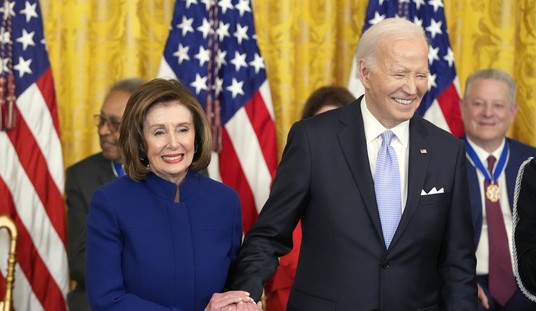Suppose our betters in Washington tried to save the environment but ended up causing rolling brownouts and increased environmental damage instead?
Almost forty years ago when the federal government split up AT&T, my libertarian-leaning father quipped, “I hope someday the head of DOJ picks up a phone and there’s no dial tone.”
Imagine a near-future where you plug in your electric car to charge overnight — and there’s not enough juice to get the job done. Even worse, mining the materials that go into your car’s battery — the one you can’t even charge some nights — “could lead to an environmental disaster.”
That’s the future nanny-staters, do-gooders, and short-sighted environmentalists are engineering for us all, in the mad rush to electrify the nation’s fleet of over 100 million internal-combustion engine vehicles.
Perry Gottesfeld — a member of the California Environmental Protection Agency’s Lithium-ion Car Battery Recycling Advisory Group — recently issued a dire warning about Tesla CEO Elon Musk’s plan to make his electric vehicles more affordable. “Without cobalt,” Gottesfeld wrote, “there may be little financial incentive to recycle the massive batteries used to power the cars — and that could lead to an environmental disaster.”
Those massive EV batteries “require ingredients sourced from polluting mines and smelters around the world, and they can ultimately contaminate soil and water supplies if improperly disposed.”
Even worse, they don’t live up to the recycling hype:
None of the lithium-ion batteries in electric vehicles are recyclable in the same sense that paper, glass, and lead car batteries are. Although efforts to improve recycling methods are underway, generally only around half the materials in these batteries are currently extracted and repurposed. And without the most valuable ingredients, there will be little economic incentive to invest in recycling technologies.
The result, Gottesfeld concludes, “could be a massive health and environmental crisis.”
As things stand now, First World countries are dumping their used lithium-ion batteries on “low- and middle-income countries, many of which lack stringent environmental safeguards and the facilities to recycle or otherwise process used batteries in an environmentally sound way.” In addition to the generous tax subsidies doled out to the mostly-wealthier buyers of EVs, we’re cutting corners on how we dispose of them, and in ways that we’ll all have to pay for at some later time.
In other words: We can’t afford Tesla’s least-expensive cars.
More VodkaPundit: Dear Biden Voters, You’ve Been Seriously Had
There’s much more at this link, and it’s refreshing to see such an honest assessment of the downsides to electrification from someone in Gottesfeld’s position.
Gottesfeld’s challenging article came just weeks after Musk warned that global electricity production will need to double in the next 20 years to provide for all those EVs. It’s easy to dismiss many of the things Musk says, since he’s prone to miss his own deadlines by years. How many years has he promised that fully self-driving cars are just a year or two away?
I’ve lost count.
ASIDE: I’m no Musk-hater. I’m not indulging in hyperbole when I tell you that what he’s doing at SpaceX might just be humanity’s future off this Earth. And while I don’t support subsidies for anything, EV subsidies were there for any carmaker to take advantage of — and it was mostly Tesla that won customers’ hearts. Musk is a very weird, but also very impressive individual and industrialist.
But Musk’s warning was quickly echoed by Toyota CEO Akio Toyoda, who also warned that “the more EVs we build, the worse carbon dioxide gets… When politicians are out there saying, ‘Let’s get rid of all cars using gasoline,’ do they understand this?”
PJ Media’s own Bryan Preston asked right before Christmas, “How will we generate power to meet the new level of demand?”
If the politicians who are pushing to ban gas cars and force everyone over to EVs with renewables at their present or near-future state of development do understand any of this, they’re not letting on. They’ll wreck modern industry.
Yet politicians remain so hellbent on pushing EVs at any cost that it’s fair to conclude that wrecking modern industry is precisely the goal.
For the record, I love the idea of electric vehicles. Having fewer than 20 moving parts between the power pack and the wheels is a game-changer in terms of mechanical simplicity and the accompanying maintenance savings.
But if you live in a cold area, or you drive long ranges, or you need to tow a boat or a camping trailer (I do two out of three, and am shopping for a trailer), then the limits of EVs become all too apparent.
And that’s before we get to the things nobody knows how to pay for, like recycling barely recyclable batteries or producing enough affordable electricity to keep the cars running — not to mention keeping the lights on and the fridge cold.
I bet I sound just like my father when I say, “I hope someday the head of the EPA switches on his office lights and nothing happens.”










